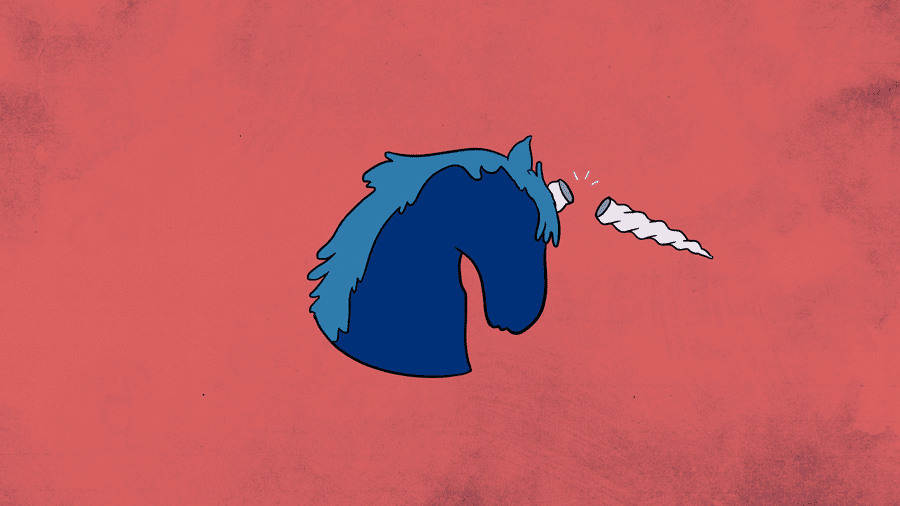The idea that WeWork’s failed IPO wouldn’t impact the broader startup markets was based on the point that the company was such an outlier, that extrapolating too much from its single data point would be an error. As no other company was in such dire shape, it would be silly to overemphasize WeWork’s real market impact.
Subscribe to the Crunchbase Daily
Savvy investors, so the thinking went, wouldn’t worry about other companies merely because WeWork fell over.
The same point could be extended to Uber and Lyft and other companies whose (at times) unprofitability made them less attractive than they had once been. (Lyft, as you recall, has worked to push back against the narrative with results and promises.)1
But all that might be wrong. A new post from well-known entrepreneur and venture capitalist David Sacks draws a very different sketch of WeWork, its possible impacts, and where the market is today. We’re sharing two paragraphs (one early, one late) from his short post. Do read what’s below, and then make sure to read all of the original entry:
The topic du jour in tech right now is the sudden reappraisal of some high-flying startups based on unit economics/gross margins (e.g. WeWork, Uber, Lyft, DoorDash, Postmates, etc). […]
The public market’s verdict on WeWork and other gross margin-challenged companies has trickled down to growth and venture investors. Growth capital has seemingly tightened overnight. Winter is here. Founders should plan to be contribution margin positive by the time they raise growth capital — or at least be close to it, with a highly credible plan to get the rest of the way. Founders can no longer depend on an endless spigot of funding to defer tough business decisions.
Sacks wrote that yesterday, so the perspective is fresh.
Here at Crunchbase News, we’ve covered lots of positive signs in the startup market and the surrounding halls of capitalism. We’ve also noted some of the weaker signals. And that’s generated some mild chiding from industry participants.
But I can’t recall something this stark being said out loud in some time: “Growth capital has seemingly tightened overnight. Winter is here.”
Sacks does go on to say that his pronouncement, this window into the world of growth capital and its new expectations, is “not a bad development for our industry or for founders who want to build real businesses.”
Signs Of Winter
Signs of some issues in the late-stage market have cropped up in recent weeks. Three rounds of layoffs at recent IPO Uber were notable. WeWork is going to endure stiff layoffs as it seeks to right its own ship. Fair, a car leasing unicorn backed by the Vision Fund, is cutting back on staff. So is Wag.
What Sacks has done is make it perfectly acceptable now to be rather skeptical of the late-stage (growth, if you want) market in the world of private capital. Don’t trust me, trust him, and so forth.
So expect more winter watching from these pages of the coming weeks. There will be, nearly certainly, more cuts and retrenchments from some of the companies in the market who have raised the most, spent the most, and lost the most money.
To that effect, here are two recent such announcements:
- JUUL is laying off 500 people, despite being one of the most highly-valued private companies in the world. Regulatory pressure and self-inflicted wounds are throwing JUUL into choppy waters.
- Wag is looking for a buyer at a price that will likely be a fraction of what the Vision Fund valued it at when it pumped huge sums into its coffers.
Lots of unicorns have great gross margins and businesses that can tack towards profitability or even cashflow breakeven. But some unicorns don’t, and according to Sacks the snow is already falling.
More when they tell us how they are doing.
Illustration: Li-Anne Dias.
Lyft and Crunchbase, Crunchbase News’s parent, share an investor. That fact doesn’t impact our coverage, but we like to point it out when such a situation comes up.↩

Stay up to date with recent funding rounds, acquisitions, and more with the Crunchbase Daily.











67.1K Followers